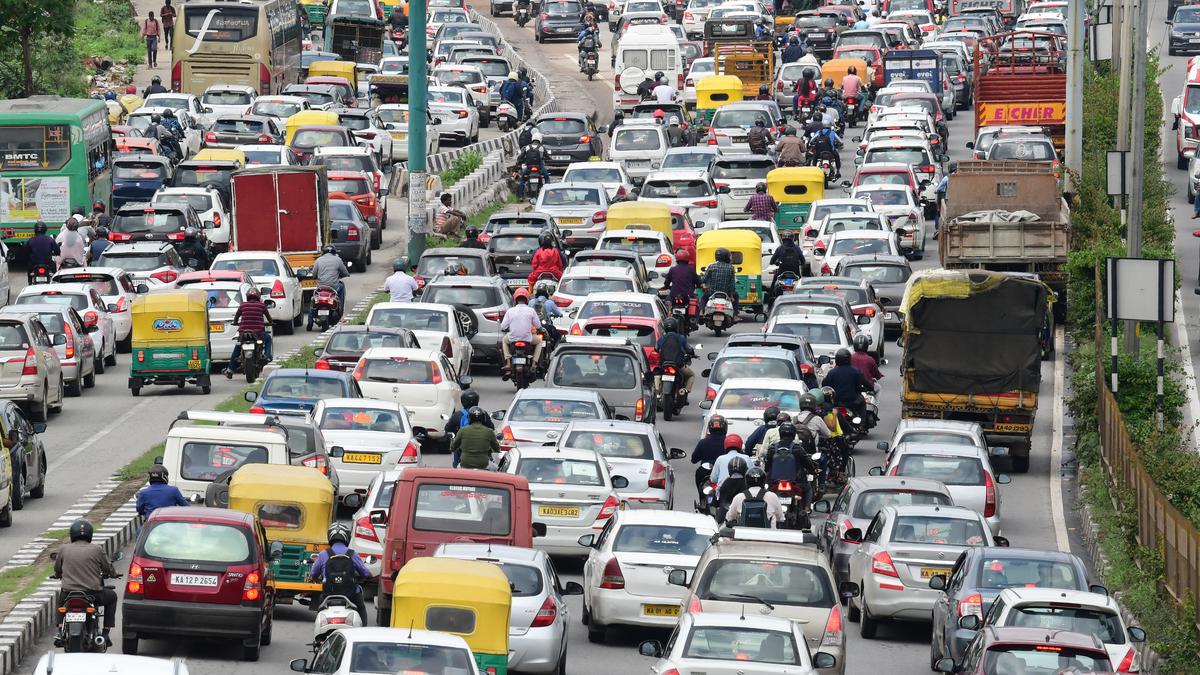
In the heart of India’s tech hub, Bengaluru, where the young and ambitious flock for burgeoning career opportunities, there’s a unanimous whisper among its denizens about the city’s Achilles’ heel – the notoriously congested traffic. This shared grievance, however, may soon find solace in the arms of technological innovation, courtesy of Google’s latest venture, Project Green Light. Launched with the aim to redefine urban mobility, this AI-powered endeavor seeks to untangle the knots of Bengaluru’s traffic snarls, promising a greener, more efficient future.
Bengaluru’s traffic woes are no secret. The city, celebrated for its vibrant tech scene and dynamic workforce, has long grappled with traffic congestion that tests the patience of its commuters daily. However, the narrative began to shift with the introduction of Google’s Project Green Light. This groundbreaking initiative has ignited hope among residents and city planners alike, proposing an AI-driven solution to streamline traffic flow and cut down emissions.
- Origins: The concept for Project Green Light was birthed from a casual dinner conversation between Google researcher Dotan Emanuel and his spouse in 2021. Since then, it has evolved into a global mission to revolutionize urban mobility while combating climate change.
- Technology: Utilizing artificial intelligence and data from Google Maps, the project offers a sophisticated understanding of global road networks. It models traffic patterns to provide intelligent recommendations to city traffic engineers, aiming to ease traffic flow and reduce emissions.
- Impact: Juliet Rothenberg, Climate AI product team lead at Google, highlighted the project’s significance in a CBS News interview. Operational in 13 cities worldwide, including Bengaluru, the initiative focuses on optimizing every red light as an opportunity to improve traffic management.
Project Green Light’s impact is not just theoretical. Preliminary statistics showcase a potential reduction of up to 30% in stops and a 10% cut in emissions at intersections. In the 70 intersections where the initiative is active, the benefits are tangible – substantial fuel savings and reduced emissions, enhancing the daily commute for millions.
The project currently operates across 70 intersections in 12 cities, spanning from Bengaluru to Seattle. Its success in Kolkata has been particularly noteworthy, with Police Commissioner Vineet Kumar Goyal lauding its effectiveness in boosting traffic efficiency and safety. Since its implementation in November 2022, Kolkata has seen Project Green Light’s recommendations bring about significant improvements at 13 intersections, earning accolades from both commuters and traffic officials.
Bengaluru’s escalating traffic problem is a multifaceted issue, stemming from rapid urbanization, inadequate infrastructure, and a growing population. The city’s roads are perpetually clogged, leading to prolonged commutes, increased pollution, and a diminished quality of life. This grim reality is often depicted in memes and news stories, underscoring the public’s frustration and the dire need for innovative solutions.
Google’s Project Green Light employs a sophisticated AI algorithm that analyzes vast amounts of data from Google Maps to understand and predict traffic patterns. By identifying bottlenecks and optimizing traffic signal timings, the project aims to reduce unnecessary stops, improve traffic flow, and decrease emissions. Its approach is a testament to the potential of leveraging technology to address urban challenges.
The scope of Project Green Light extends far beyond the confines of Bengaluru. Its global footprint includes cities like Rio, Hamburg, and Seattle, demonstrating the universal appeal and applicability of its solution. Each city’s experience with the project provides valuable insights into how technology can be tailored to meet local challenges, offering a blueprint for other urban areas facing similar issues.
Project Green Light’s Impact by City
| City | Intersections | Reduction in Stops | Emission Reduction |
|---|---|---|---|
| Bengaluru | 20 | 30% | 10% |
| Hyderabad | 15 | 25% | 8% |
| Kolkata | 13 | 28% | 9% |
| Seattle | 10 | 22% | 7% |
Key Highlights
- AI-Powered Traffic Management: Through the use of advanced AI, Project Green Light aims to optimize traffic signals in real-time, reducing congestion and emissions.
- Data-Driven Insights: Leveraging data from Google Maps, the project offers a comprehensive understanding of traffic patterns, enabling effective interventions.
- Global Initiative: With operations in 13 cities worldwide, Project Green Light showcases the potential of technology to address urban mobility challenges on a global scale.
- Positive Outcomes: Early results indicate a significant reduction in stops and emissions, underscoring the project’s impact on urban environments.
As Bengaluru and other cities worldwide continue to navigate the complexities of urbanization, initiatives like Google’s Project Green Light offer a beacon of hope. By harnessing the power of AI and data analytics, there’s potential not only to improve traffic conditions but also to contribute positively to environmental sustainability.
The road ahead is promising, with technology playing a pivotal role in reshaping urban landscapes. As cities evolve, the integration of innovative solutions like Project Green Light could mark the beginning of a new era in traffic management, where efficiency and sustainability go hand in hand.
Related News:
Featured Image courtesy of The Hindu
